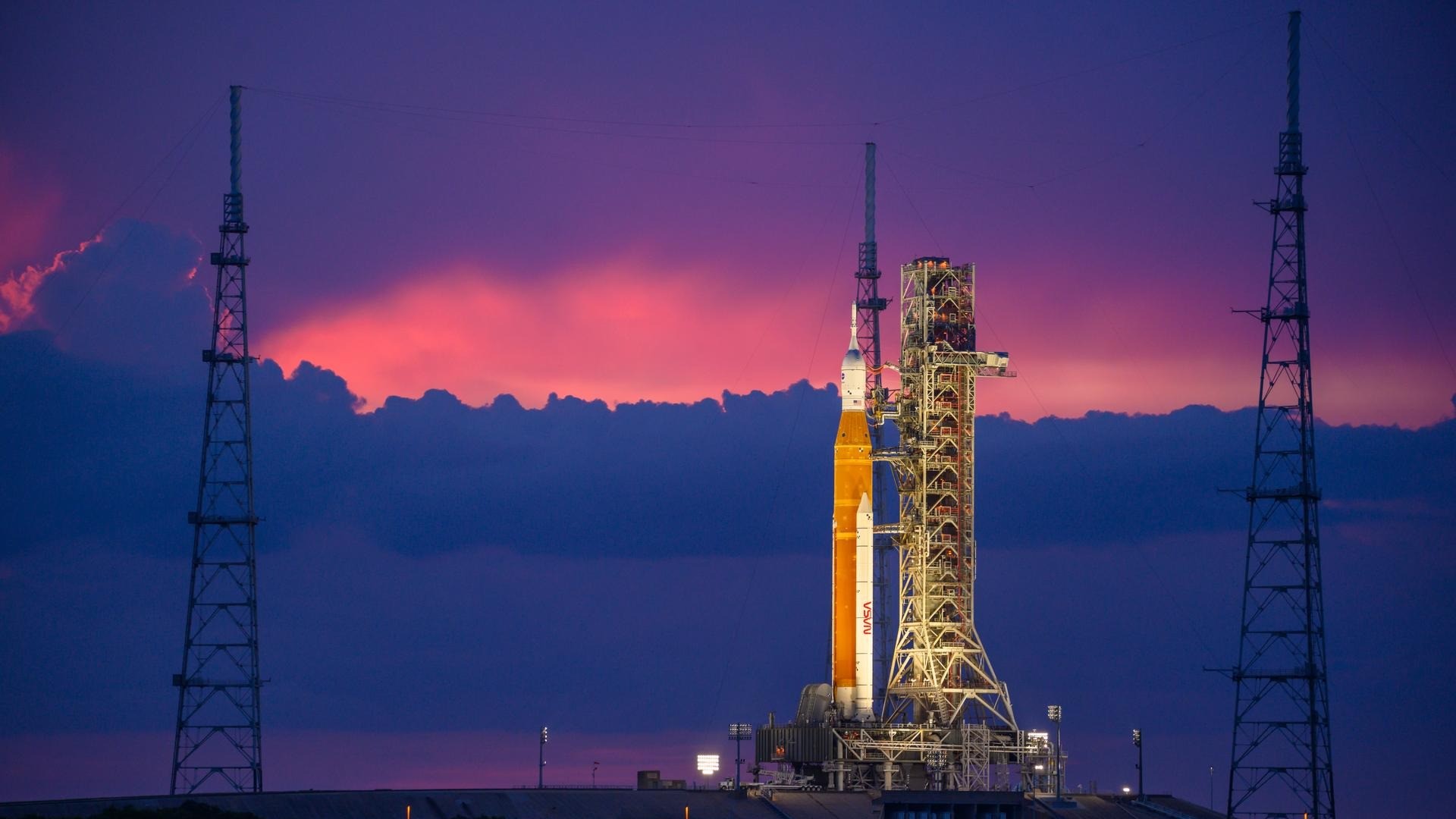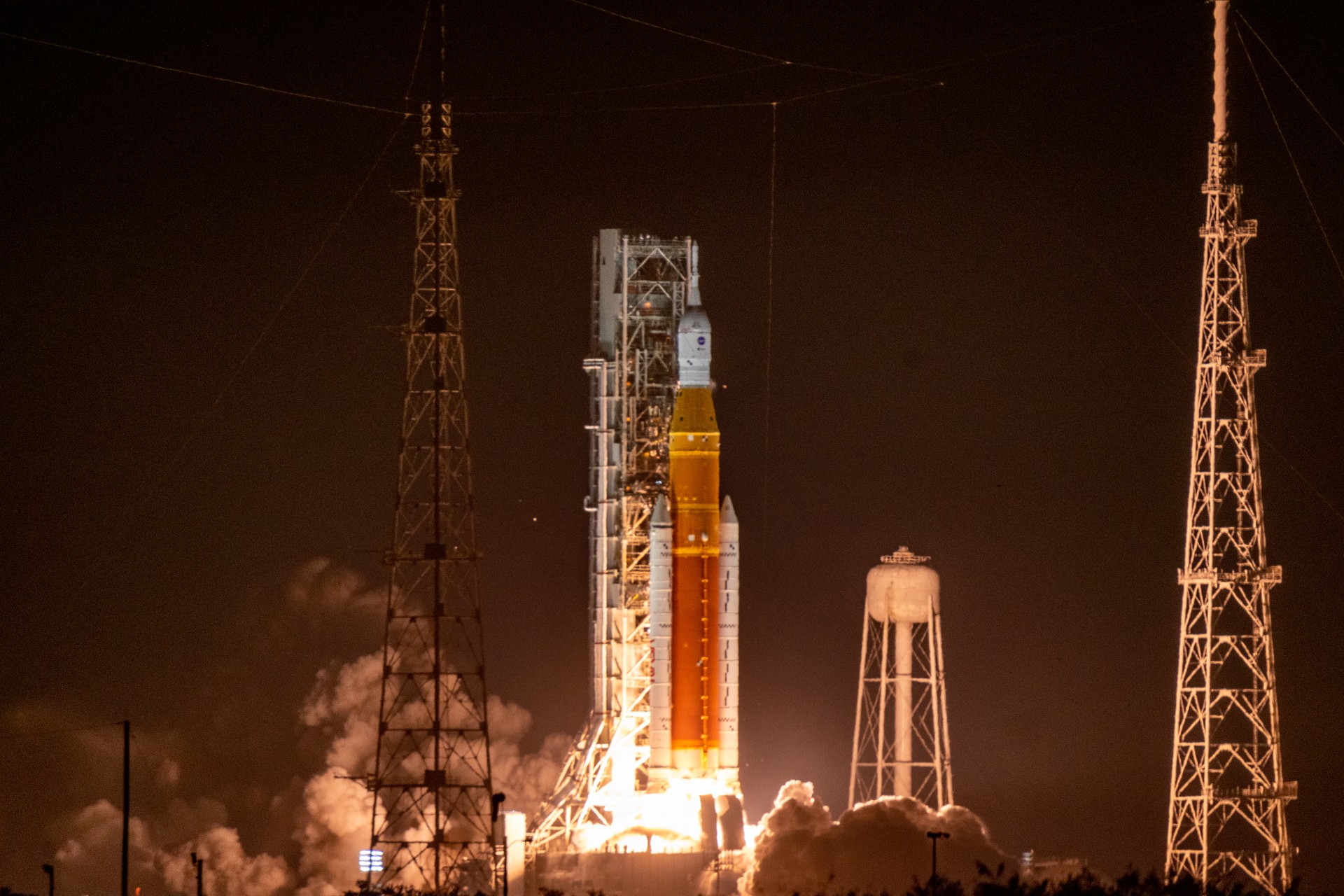Boeing plans to lay off hundreds of employees working on NASA's SLS moon rocket: reports
Boeing notified employees it is planning to issue layoff notices "to align with revisions to the Artemis program and cost expectations."

Boeing is preparing to issue layoff notices to roughly 200 employees working on the Space Launch System (SLS) — the massive rocket central to NASA's flagship Artemis program — as it braces for the possibility that its contracts with the space agency may not be renewed after they end in March.
Of the approximately 400 positions Boeing initially considered cutting by April "to align with revisions to the Artemis program and cost expectations," the company managed to preserve half of the jobs after daily talks with NASA, Boeing's Vice President and program manager for the SLS rocket, David Dutcher, notified employees in an email last week, according to Bloomberg.
The news of layoffs, first reported by Ars Technica on Feb. 7, comes as six space industry representatives advising President Donald Trump and Elon Musk say they want the duo to cancel the SLS program — or at least phase it out over several years, Reuters reported on Wednesday (Feb. 12).
The development of SLS, for which Boeing is the primary contractor, has cost $23.8 billion between its inception in 2011 and its first Artemis test flight that occurred in late 2022. The megarocket is neither reusable nor inexpensive: it can launch only once every two years and costs an estimated $4.1 billion per launch, making it effectively unaffordable for future Artemis missions.
Critics often argue Musk's SpaceX could accomplish missions to the moon at lower costs with its reusable Starship vehicle, which is undergoing test flights in preparation for the Artemis 3 crewed mission, currently scheduled for 2027. Historically, however, SLS and Orion spacecraft development has received substantial funding from a broad coalition; the program supports more than 69,000 jobs nationwide as of 2019.
But critics contends that the rocket's costs and slow pace of development mean it should go the way of the space shuttle. "Regarding space, the Artemis architecture is extremely inefficient, as it is a jobs-maximizing program, not a results-maximizing program," Musk wrote in a post on X on Dec. 25. "Something entirely new is needed."

NASA itself has not yet officially noted any changes to its Artemis program. At the SpaceCom conference in Florida last month, Kirk Shireman, who is the Orion program manager at Lockheed Martin, said NASA's current approach to Artemis remains effective despite criticism regarding costs and delays, according to a report by SpaceNews.
Get the Space.com Newsletter
Breaking space news, the latest updates on rocket launches, skywatching events and more!
"What we need to do is tell the people in the new administration and anyone we can talk to this about is, hey, the fastest way to get humans back on the moon is to stay the course," Shireman said, according to SpaceNews.
"Things take a long time to build and certify and, if you throw them away every four years and start over, that's probably the slowest and most expensive thing we could do."
Join our Space Forums to keep talking space on the latest missions, night sky and more! And if you have a news tip, correction or comment, let us know at: community@space.com.

Sharmila Kuthunur is a Seattle-based science journalist focusing on astronomy and space exploration. Her work has also appeared in Scientific American, Astronomy and Live Science, among other publications. She has earned a master's degree in journalism from Northeastern University in Boston. Follow her on BlueSky @skuthunur.bsky.social
-
billslugg Plenty of opportunity in the private sector. If not, start your own. You have seen your bosses show you how not to run a company.Reply -
Unclear Engineer It never really made sense to me for Artemis to be dependent on the success of StarShip development. If Artemis was a complete program, where it was launching its own lander with perhaps a second SLS launch and rendezvous in lunar orbit, then I would think it wise to not terminate the SLS development before StarShip succeeds with in-space refueling and the other firsts needed to provide a lander for the Orion capsule crew.Reply
But, that is not the case. If StarShip doesn't succeed, Artemis is not going to be able to put boots on the Moon, at least not until Blue Origin catches up with the other two development projects. However, once StarShip is successful, SLS really is no longer a necessary component for the Artemis Program.
But, as I posted before, I am warry of the situation where Musk is involved in so many other activities, including very political activities, that might somehow hamper his ability, or even his intent, to keep funding the StarShip development process and or its focus on the Moon instead of just Mars.
"Failure is not an option" is just loose talk - failure is a definite possibility.
To succeed, we need a good engineering plan and the resolve to keep following it through various political changes. That is something that the Chinese seem to be able to accomplish. But, the U.S. has been very politically fickle about its space programs. So, even if there is a decision today to have NASA switch to a SuperHeavy + StarShip (and maybe + Orion) strategy, the party-dominated politics of our U.S. political system suggests that program plan could be scrapped within 4, or maybe even 2 years from now, because of the political affiliations of Musk.
It is very easy to be destructive - much harder to be constructive. -
trailrider It is obvious that StarShip+SuperHeavy must be successfully brought to operation before cancellation of SLS+Orion+Gateway could be done. IF the former can be brought to operational certification, including whatever configurations would be necessary (refueling in LEO, etc.), then from an operational standpoint, SLS is a poorer choice. Hopefully, even with all his other functions, Musk knows how to choose people who can bring about success of StarShip. If not, then our astronauts had better learn to speak Mandarin!Reply
Ad Luna! Ad Ares! Ad Astra! -
bwana4swahili Boeing should just get back to designing/manufacturing viable airplanes. It is obvious they don't have the competence to design/build a spaceship.Reply -
billslugg It's not a "space versus airplane" problem, it is a management problem. The engineers got taken over by the accountants. (See: "737 MAX")Reply -
DrRaviSharma Even after 50+ years of Apollo of which I am a proud beneficiary I am sorry to see the waste of taxpayer resources by a select group of old stalwart companies that made Apollo Possible.Reply
Retiring Shuttle was premature making us dependent for nearly a decade
Auditing wasted money on big contracts is futile. Competent Space experts can be pooled to sort and sift through pile to identify and ensure those subsystems that are viable when integrated in newer approaches parallel to those of SpaceX but we need to keep one alternative open while SpaceX (if not defocused by new responsibilities) makes advances as in past. Otherwise default alternative will be China? Starship is already slow in becoming cargo and human rated for cislunar space?
What happens to Artemis signatories if the foundations are shaken, and confidence in our promise and continuity as seen globally.
Can large corporations ride quietly without being accountable under the usual cost escalation excuse? What are checks and balances for long range investments necessary in defense space-force and commercial space assets?
Pentagon, NASA, Large Industry players need to soul search and what happens to unused space Shuttle engines. etc. as proven assets?More later...
regards









